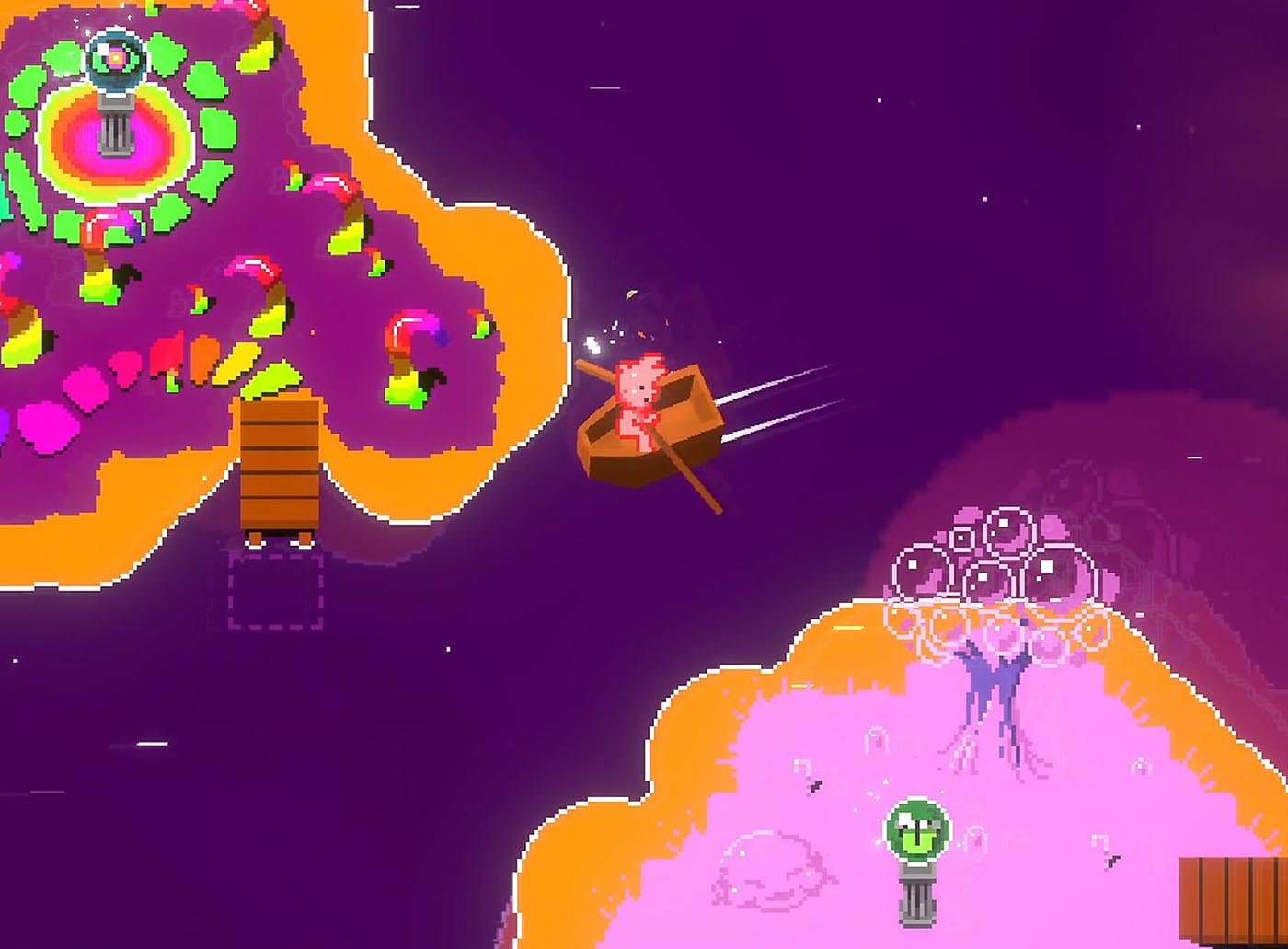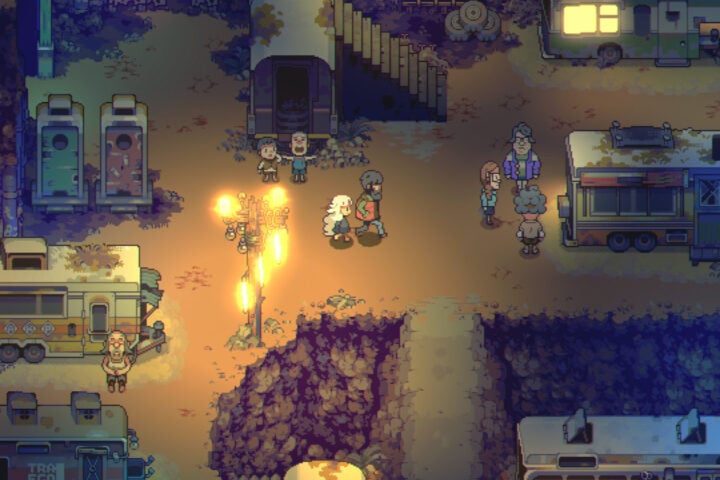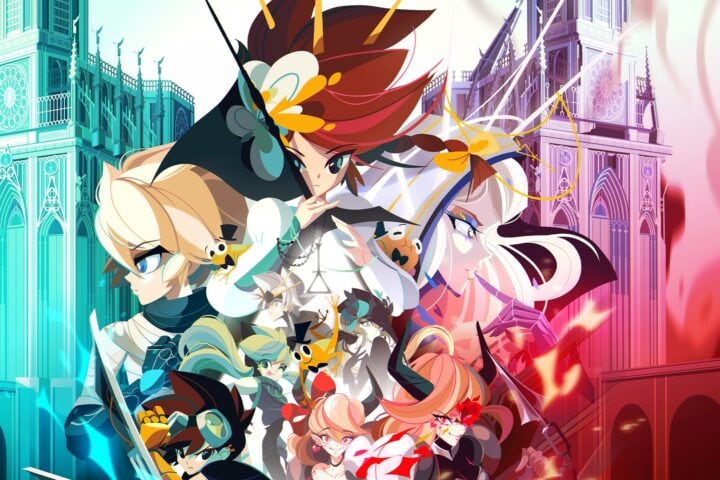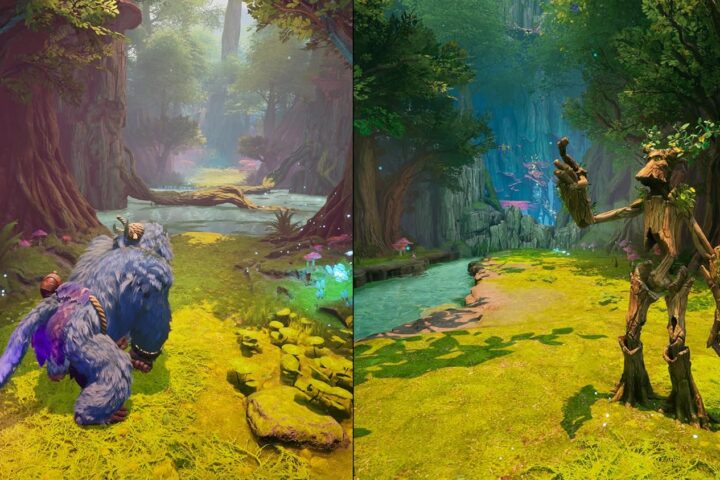As you wander the neon, liminal passages of the labyrinthine Hillbert Hotel in Chris Nordgren and Jorda Roca’s Everhood 2, you may stumble upon a character based on American ethnobotanist and mystic Terence McKenna. “Transcendent images,” he explains, gesturing to the seemingly random art around him, “that can lift us to a new cultural level.” Though Everhood 2 falls short of such pretentious aims, that’s as good of a mission statement as any to grab onto in this sublimely slippery game, which uses a backbone of rhythmic action RPG combat to weld together a series of slapdash philosophical vignettes.
That action, which largely hinges on you dodging or absorbing color-coded objects as you move and jump across five lanes of notes, keeps things grounded in a familiar loop of overcoming foes and gaining experience. It also provides a real challenge for achievement seekers, who must push the risk-reward system to the max, absorbing long streaks of a single color without getting hit in order to release high-level attacks capable of beating enemies in a single hit. Even when the battles get weird, as in one involving a multihued, desaturated phantasm that suggests something out of the Stargate sequence from 2001, they’re an enjoyable constant.
The pleasant rhythmic action mercifully gives you something to hold onto as the game jumps between, for example, the ROM-corrupted innards of a SMEGA console, an Earthbound-esque morality play in the town of Summersville, and hell itself, which comes complete with an “Abandon All Hope” sign. A hub exists filled with doors that can take you to a warring kingdom of fruits and vegetables one minute and to a battle not just with God but with the very End of Time itself the next. After failing one encounter, the game booted me into a lengthy sequence from the original Everhood. Another led to an extended fake-out ending—and then another.
Of course, the disorientation that Everhood 2 seeks to bring about is more or less the point here. Indeed, you need look no further than the start screen to know that the game is a case of an identity crisis, as its subtitle is ever changing, promising “A Lyrical Soul Death” one moment and “My Lovely Sweet Dream” the next. You’re not meant to know what to expect from this inscrutably odd gaming experience—a glorious mess of contradictions like a one-dimensional maze, absurdities like a battle with a slot-machine toilet, and graphically pixelated violence (“They are just a puddle of skin,” reads the description of one horrifying scene).
For better and worse, you feel untethered even in the most linear sequences, as you’ll spend hours with characters without ever feeling the slightest bit connected to or invested in their manic decisions. There are rooms jampacked with NPCs, and you can optionally chat with each. Most just make cheap jokes, but because every so often one of them offers up a nugget of profundity, these conversations feel unskippable. Everything ripples with a sense of surprise, the potential for unexpected highs but also some undeniable lows, like an empty corridor sequence longer than Kojima’s infamous ladder-climbing scene in Metal Gear Solid 3.
From the scenes featuring post-apocalyptic wastelands and time travel, it’s clear that the developers have studied classics like Shin Megami Tensei and Chrono Trigger. But while Everhood 2 successfully shakes up roleplaying conventions, it may leave you feeling disconnected from everything you see and do, namely about what to take seriously or not.
Maybe it’s intended as a joke that you only get the trophy for “completing the tutorial” once you’re 80% done with the game—there seem to be multiple “ending” scenes—or maybe that’s a tacit acknowledgement of the game’s refrain: “It Never Ends in Everhood.” Perhaps the base game is just the tutorial and the real game is what awaits players after they return to the main hub and are reminded of the weekly battle arena challenges and the levels that can be accessed inside the Hillbert Hotel created by other players. So for those predisposed to wanting to see everything all at once, maybe that will be transcendent enough.
This game was reviewed with a code provided by Stride PR.
Since 2001, we've brought you uncompromising, candid takes on the world of film, music, television, video games, theater, and more. Independently owned and operated publications like Slant have been hit hard in recent years, but we’re committed to keeping our content free and accessible—meaning no paywalls or fees.
If you like what we do, please consider subscribing to our Patreon or making a donation.






